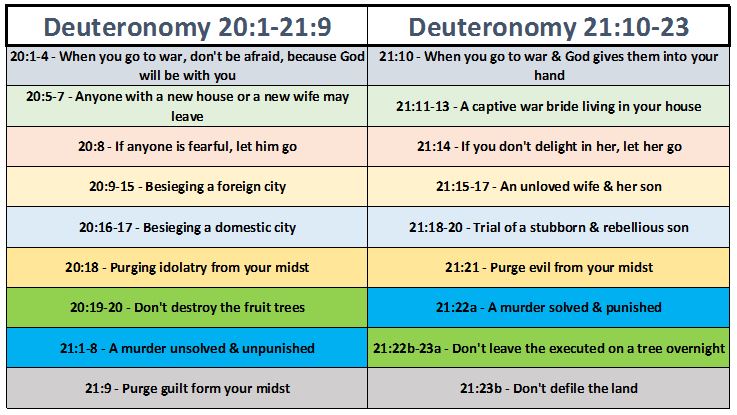
The starts and stops of this parallelism mark it off pretty clearly, but some of the details might be difficult for some to see.
The second half (Deuteronomy 21:10-23) is a progression from what was probably a bad decision to its tragic consequences: A man captures a woman in a raid on a foreign city and decides to keep her. She’s not to keen on the idea and makes life unbearable for him. Their son learns from his mother and becomes a serious problem. At some point either the son has to be killed or he ends up killing someone else.
The first half (Deuteronomy 20:1-21:9) contains separate laws by itself, but the parallelism provides insight into what it’s like living in the crazy house with the captive war bride and her rebellious son. Besieging a foreign city (or being besieged by foreigners) probably isn’t very different from living with a woman you hate & who likely returns your antipathy. Besieging a city of idolaters within your own borders must be something like trying to correct a rebellious and stubborn son before finally giving him up as hopeless and deciding it/he must be excised like a cancer.
The really curious part to me is the reversal towards the end. Why does part one go from trees to an unsolved murder, while part two goes from a solved murder to trees? Perhaps because in the former case the subject acted wisely and preserved the fruit of the land (his children), while in the latter, through foolishness, he turned the rightful order of life on its head and converted his life-giving trees/sons into instruments of death.
Everything that Yeshua (aka Jesus) & the Apostles taught
Come with me as I draw out the connections that are so often missed |

